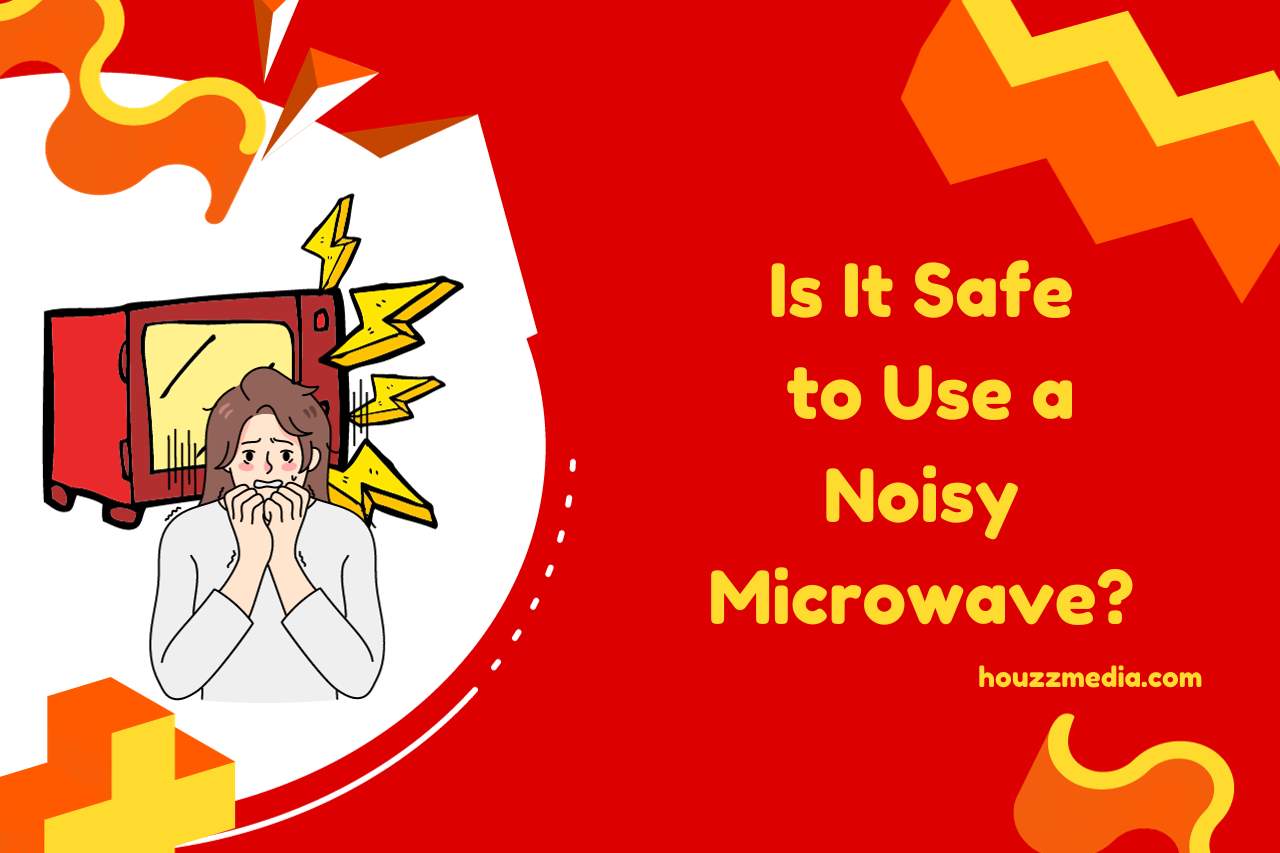Why is My Microwave So Loud? Understanding Unusual Noises!
Are you pondering ‘Why is my microwave so loud’ while you stand by as it hums, buzzes, and rattles away? This common kitchen conundrum not only disrupts the peace but may signal underlying mechanical issues. Thus, you cannot ignore it, although the appliance still cooks your food. From misaligned turntables to worn-out magnetrons, the causes are many, but solutions await. In case you are struggling with a noisy appliance, let us guide you through simple fixes to ensure your microwave runs quietly and efficiently, blending seamlessly into your daily routine! So, let’s get started!
Why is My Microwave So Loud?
Your microwave can be so loud due to reasons such as turntable motor wear, magnetron deterioration and so on. Understanding each cause leads to better troubleshooting, so check the points below.
- Turntable Motor Wear: The motor that spins the turntable can wear out or lose lubrication over time, resulting in a range of sounds from grinding to squeaking. Regular maintenance can prevent these sounds, but a replacement may be necessary if the noise persists.
- Magnetron Deterioration: The magnetron is responsible for generating microwaves. If it starts to fail, it might emit a loud buzzing or humming noise. If the component has been functioning for a long time, this issue can arise.
- Cooling Fan Blockages: Dust and debris can accumulate on the cooling fan, leading to increased resistance and noise as the fan strains to maintain the temperature. Cleaning the fan can often solve this issue.
- Roller Ring Misalignment: The turntable sits on a roller ring. If this ring isn’t properly positioned or if it’s dirty, it can cause the turntable to drag and create noise. Thus, proper positioning and cleanliness are necessary for the roller ring.
- Waveguide Cover Contamination: The waveguide cover directs microwaves to the food. If it’s covered with food splatter, it can cause popping sounds and even sparks.
- Worn-Out Door Seals: Over time, the seal around the microwave door can deteriorate. This not only leads to increased sound as the microwave operates but can also be a health concern because of potential microwave leakage.
- Drive Coupling Degradation: The coupling that connects the turntable to the motor can become worn. Consequently, the turntable might operate unevenly and noisily. Inspection and replacement of the drive coupling can resolve this.
- Misalignment of Drive Bushing: The bushing allows for smooth turntable motion. If it is misaligned, the turntable can wobble or make scraping noises. Then, realignment or replacement of the bushing is a potential fix.
- Interior Debris: Small pieces of food or pebbles from vegetables like beans that fall into the microwave’s interior can also crackle and pop when the microwave is used.
How Do you Fix a Loud Microwave?
In order to fix a loud microwave, first, you need to pinpoint the source of the noise. The reason why, the repair method varies based on the specific issue causing the sound.
For your ease, we have listed essential troubleshooting steps here. Make sure to turn it off and let the microwave cool down before starting the inspection.
- Turntable Check: Ensure that the turntable is correctly seated and that there are no obstructions causing it to drag or stick.
- Clean Thoroughly: Accumulated food particles can cause unusual sounds. Thus, take prompt action to clean the interior, including the turntable and wheels, with a mild detergent and a clean, soft cloth.
- Inspect the Drive Bushing: If the turntable is noisy, inspect the drive bushing beneath it for wear and tear. Replace it if it’s damaged.
- Examine the Door Seal: A damaged door seal can lead to excess noise due to escaping air or energy. Check the seal and replace it if necessary.
- Listen to the Magnetron: A failing magnetron can cause a loud buzzing noise. If this is the issue, the solution will be a professional replacement.
- Check for Loose Parts: Any loose screws or components can vibrate, creating noise. So, tighten any loose parts.
- Professional Diagnosis: If the noise persists or you’re unsure of the cause, a professional technician should examine the microwave to avoid any safety risks.

Is It Safe to Use a Noisy Microwave?
No, generally, it is not safe to use a noisy microwave. The type and volume of noise can indicate potential malfunction or safety issues.
It’s important to discern the normal hum of operation from irregular sounds that could signal a problem.
The safety of using a noisy microwave largely depends on the underlying cause of the sound. For instance, a soft humming while it’s operating is typical, as microwaves use a device called a magnetron to generate waves, which naturally produces a soft hum.
However, loud or unusual noises like grinding, loud buzzing, or popping can be signs of a malfunction, such as a faulty turntable motor, a deteriorating magnetron, or even electrical issues that could potentially lead to a fire hazard.
If you neglect the noise for a long time, the microwave eventually fails to cook due to malfunctioning components.
Watch this one,
Video Credits – RepairClinic.com
You May Also Like
- Can you Microwave Parchment Paper? Safety Guidelines Unveiled!
- Can you Microwave a Chipotle Bowl? Satisfy Your Cravings!
- Is Rubbermaid Microwave Safe? Microwaving Made Easy!
- Why is My Microwave Not Spinning? Professional Tips!
- Why is My Microwave Smoking? Immediate Steps to Take!
- How to Get Burnt Smell Out of Microwave? (DIY Solutions)
- Does a Microwave Need to Be Vented? Understanding Kitchen Safety!
- Does a Microwave Cook from the Inside Out? (Inside vs Outside)






